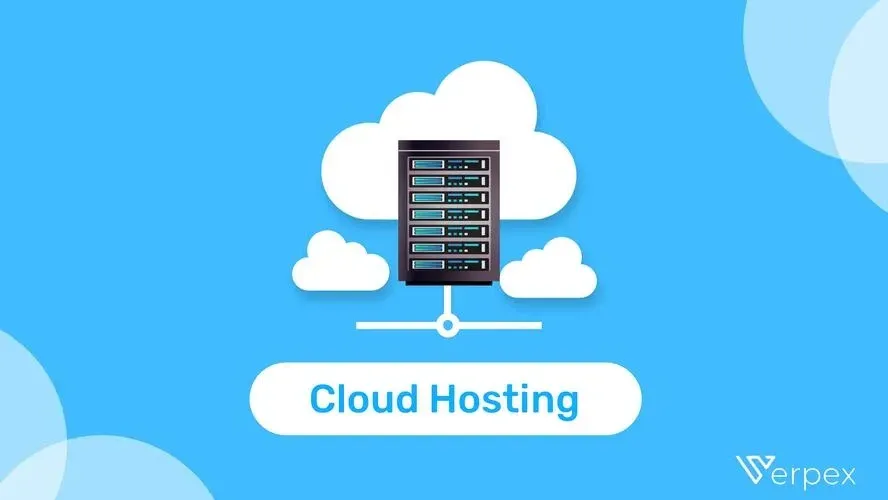Cloud hosting is great for growing websites. It uses multiple servers for a faster and more scalable service. It's cost-effective and adjusts to traffic changes. You can choose your plan based on visitor numbers, storage, and provider reliability. It’s also great for medium sites but, may be too much for small sites or limited for large companies.
Cloud Hosting In a Nutshell
Cloud hosting is a way to store website data on multiple servers instead of just one. This spread-out approach means even when lots of people visit your site, it stays fast and reliable
How Cloud Hosting Works
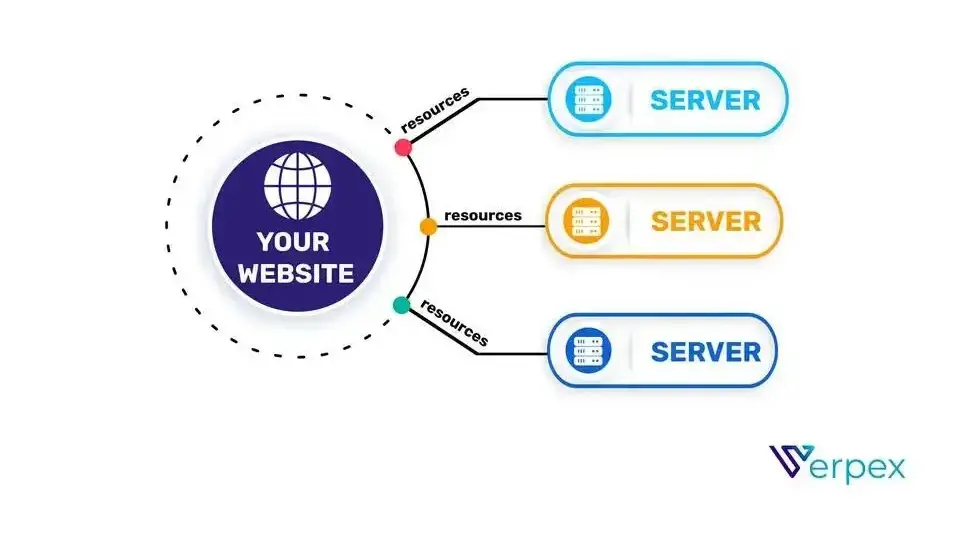
The hosting setup provides separate units for websites, ensuring efficient resource allocation and performance optimization. Here are some key points:
Distributed Resources: If a website experiences high traffic or resource strain, it can utilize resources from multiple physical servers.
Balanced Performance: Prevents any single website from completely taking up the server's processing power.
Scalability: Users have the flexibility to adjust bandwidth based on their website's size and traffic needs.
Understanding Your Web Hosting Choices
Shared Hosting Vs. Cloud Hosting
- Shared hosting is a more affordable option compared to cloud hosting.
- Offers less bandwidth and processing power.
- Ideal for small businesses, blogs, and hobby sites.
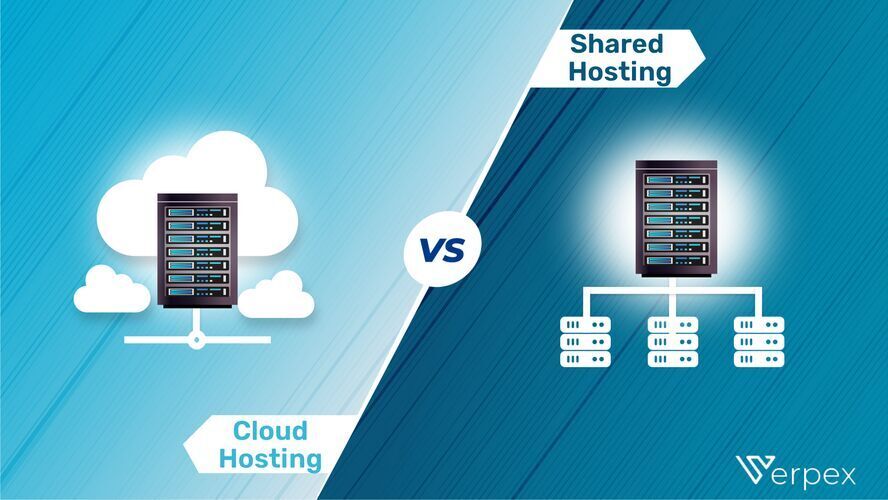
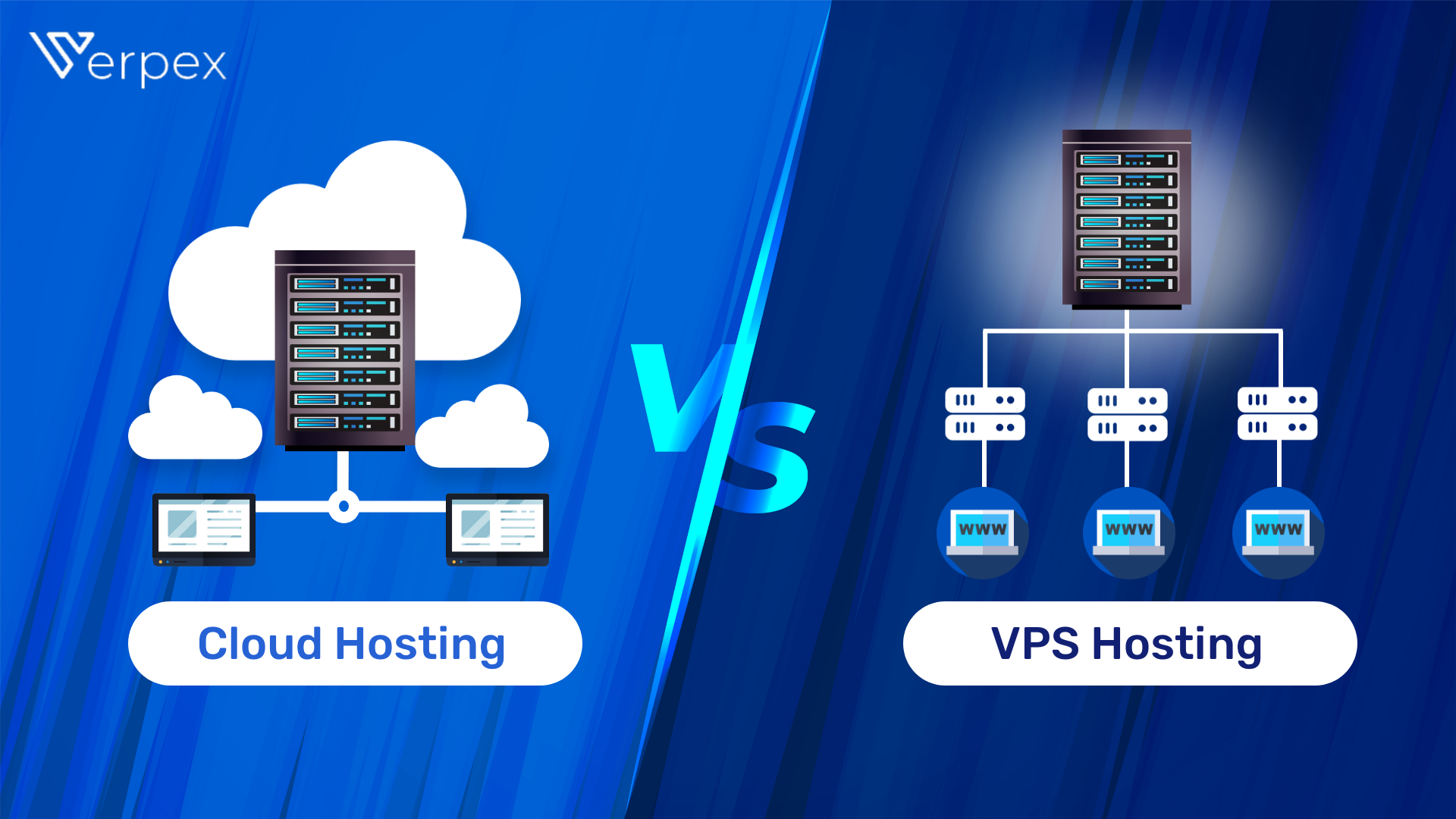
Cloud Hosting Vs. VPS
- VPS provides considerable processing power, server control, and flexibility.
- Slightly more expensive than cloud hosting.
- Suitable for larger websites.
Cloud Hosting Vs. Web Hosting
- Web hosting is a broader service encompassing file and data hosting for websites.
- Includes shared and VPS hosting, as well as dedicated hosting options.
- Cloud hosting is a part of web hosting, and focuses on using cloud resources.
- Offers scalability and resources on demand.
- Best for websites with variable traffic and those requiring high uptime.
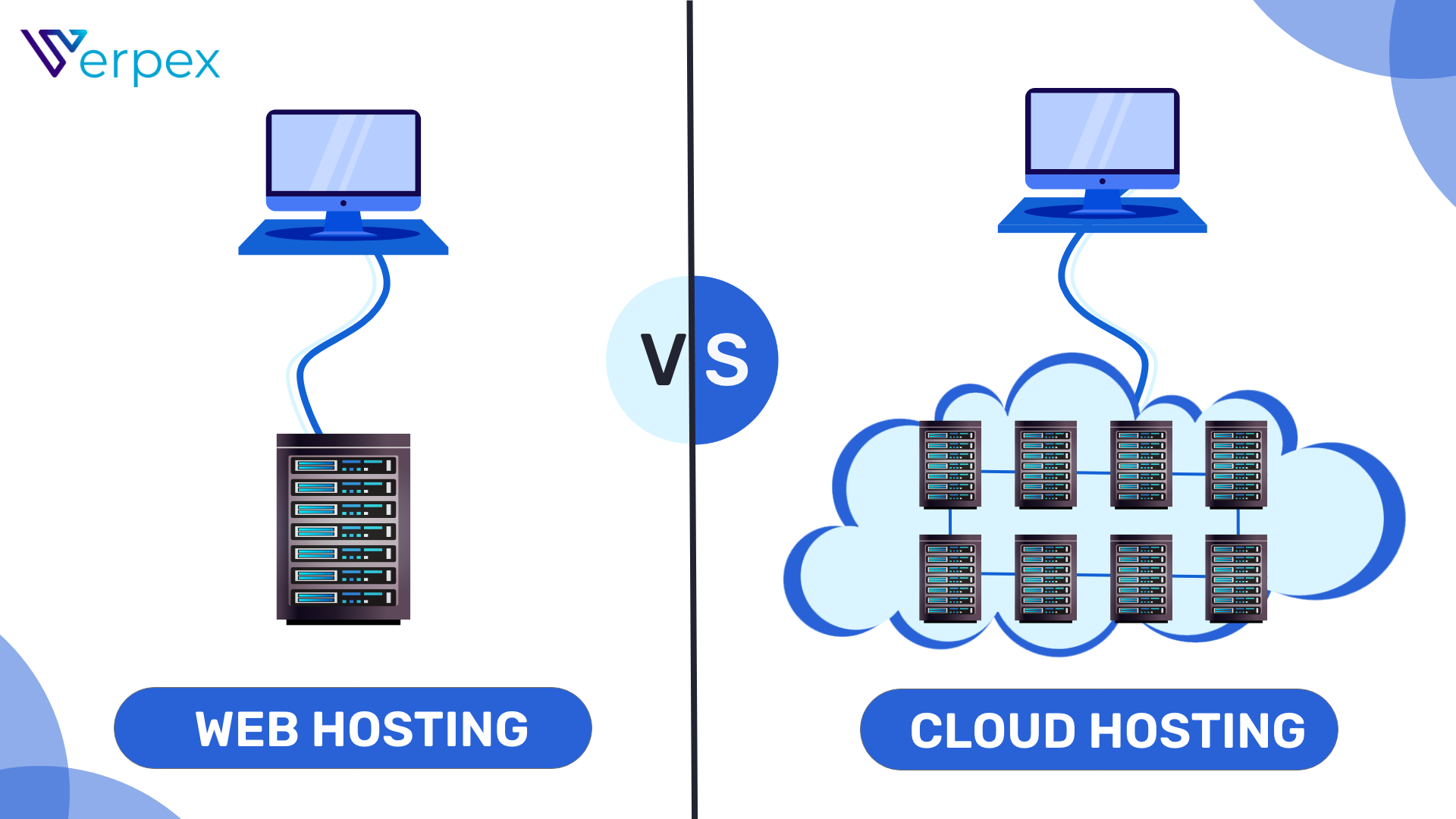
Advantages and Disadvantages of Cloud Hosting
Advantages
Disadvantages
Advantages of Cloud Hosting
Easily Scalable: You can quickly adjust your website's size to match your business needs using shared resources.
Flexible pricing: Pay only for the bandwidth you use, with the freedom to change hosting packages as needed.
Performance boost - Cloud hosting reduces site slowdown and prevents one website from using all available resources, offering better performance than shared hosting.
Redundant Servers: If one server fails, your website stays up by switching to another cloud server, enhancing business continuity.
Expert Customer Service: Access to specialists for site maintenance, security, and updates, reducing your stress and letting you focus on your business.
Quick Deployment: Setting up cloud hosting is fast and straightforward, appealing to both new and experienced website owners.
Almost Unlimited Storage: Expand your storage easily and quickly as needed with cloud hosting.
Disadvantages of Cloud Hosting
Internet reliance: Ensure a stable internet connection for cloud hosting, as losing it means losing website access. Have a backup plan for business continuity during outages.
Control limitations: Cloud hosting limits application installation and customization, especially for bespoke systems Choose an unmanaged service for more control.
Potential security concerns: Cloud hosting may lead to security risks, as data is stored offsite and managed by a third party. It's essential to understand the host's security measures and consider additional protections.
How Different Websites Can Benefit From Cloud Hosting
The primary users of cloud hosting are typically smaller websites on shared plans that have outgrown their previous hosting packages. This hosting solution is especially beneficial for
- Websites experiencing increased popularity.
- Businesses witnessing significant growth.
- Medium-sized e-commerce stores.
- Sites that will get over 10,000 monthly visitors.
- Corporate websites seeking greater cloud hosting flexibility.
When Should You Migrate to Cloud Hosting?

Site Traffic Increase
Upgrade to cloud hosting if your current package can't handle increased site traffic.

Need for More Flexibility
For seasonal increases or regular traffic fluctuations, cloud hosting offers better scalability.

Experiencing Slowdowns
Regular outages or slowdowns indicate a need for an upgrade, possibly to cloud hosting.
Choosing the Right Cloud Hosting Plan
Selecting the right cloud hosting plan is essential for the efficient and cost-effective management of online resources. Verpex offers a variety of plans to meet your website’s specific Requirements. All you have to do is:
Assess Your Needs:
- Estimate expected traffic volume.
- Identify the required storage and bandwidth.
- Determine the necessary processing power.
Compare Packages:
- Examine different pricing models.
- Review uptime guarantees and reliability.
Focus on Security:
- Inspect measures for data protection.
- Understand compliance and privacy policies.
Check for Additional Features:
- Look for backup and recovery options.
- Examine integration capabilities with other tools and services.
Evaluating Cloud Hosting Providers-What to Look For
When evaluating cloud hosting providers, it's important to consider several key factors to ensure you choose the best service for your needs. Here's a list of traits you want to look out for:
Reliability and Uptime Guarantees: Check for the provider's historical uptime records and service level agreements (SLAs) to ensure high availability and reliability.
Security Measures: Look into the security protocols and compliance certifications (like ISO 27001, GDPR, HIPAA) to ensure your data is well-protected.
Scalability: Ensure the provider offers flexible scaling options so you can easily adjust resources as your needs change.
Performance: Consider the hardware specifications, network speed, and data center locations to ensure optimal performance.
Cost Structure: Understand the pricing model, including any hidden costs or fees, to
Data Backup and Recovery: You must pick a provider like Verpex that offers daily backup in all their packages to protect against data loss.
Compliance and Legal Considerations: Make sure the provider complies with relevant laws and regulations that apply to your industry or region.
Technology and Integration: Look for compatibility with your existing tools and technologies, and the ability to integrate with other services.
Reputation and Reviews: Research customer feedback and reviews to gauge the provider’s reputation in the industry.
Environmental Impact of Cloud Hosting
Cloud hosting presents a significant opportunity for environmental sustainability in the digital realm. That’s why Verpex provides green web hosting. It has key factors that contribute to reduced ecological footprint:
Energy Efficiency: Cloud data centers optimize energy use, leading to less waste and lower overall energy consumption than traditional hosting.
Renewable Energy: Many cloud providers are investing in renewable energy, powering data centers more sustainably.
Innovative Cooling: Advancements in cooling technology and strategic location choices reduce the need for artificial cooling.
Lower Carbon Footprint: Centralized cloud resources lead to a reduced carbon footprint, with some providers adopting carbon-neutral policies.
Despite these benefits, the high energy demand of cloud data centers remains a challenge. However, continual improvements in technology and sustainable practices are making cloud hosting an increasingly eco-friendly option, reflecting a commitment to both technological advancement and environmental responsibility.
The Future of Web Hosting
Cloud hosting is rapidly becoming a key player in the web hosting industry, offering a balance of efficiency and simplicity. It is ideal for:
- Medium-sized and growing businesses seeking enhanced bandwidth and storage.
- Users who need more power than shared hosting but prefer a simpler option than VPS.
However, it's important to consider:
- Smaller websites might find cloud hosting excessive and are often better served by shared hosting.
- Large corporations may require the robust capabilities of a dedicated server, making it a more suitable choice over cloud hosting.
In summary, cloud hosting stands out as a popular choice for those needing a middle-ground solution in terms of power and complexity.
Frequently Asked Questions
Do I need technical knowledge to use cloud hosting?
Not necessarily. Under a fully managed hosting package Verpex will take care of all the technical aspects for you.
What happens if I reach my storage allowance?
You’ll need to upgrade your package. Luckily, this is an incredibly easy process and can be fixed in no time at all with a call to the customer service team.
Will cloud hosted websites be backed up?
Yes, Verpex performs daily backups of all sites hosted.
How many websites can I host in the cloud?
Our cloud hosting packages allow up to 10 websites to be hosted simultaneously.

Craig Raphael is a technical editor and expert writer for Verpex with over a decade of experience in digital content development. Craig specializes in simplifying complex topics like cloud technology and web development making it readable for humans and not just bots. Apart from researching and writing about the latest tech trends, Craig enjoys trail running, gardening and astronomy.
View all posts by Craig Raphael















